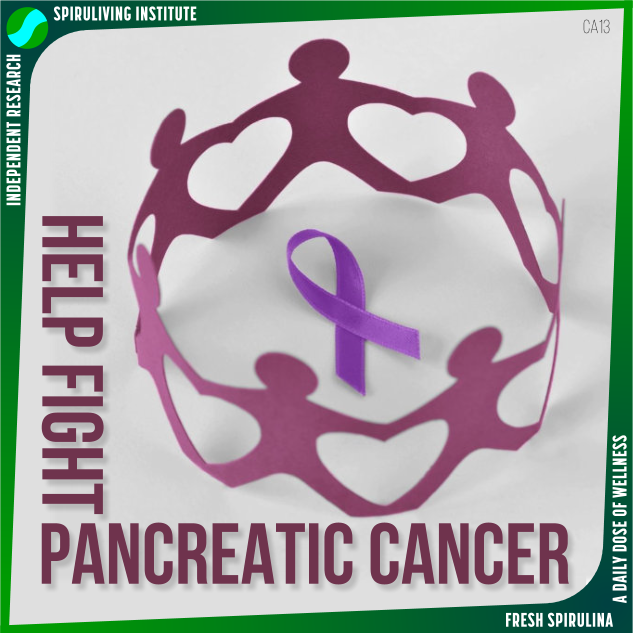
Spirulina Substantially Decreased Proliferation of Pancreatic Cancer - Independent Research
QUICK SUMMARY
PANCREATIC CANCER
Pancreatic cancer - sometimes called the silent killer - is among the most deadly forms of cancer globally, with one of the lowest survival rates.
In Australia, as of 2022, the five-year survival rate for pancreatic cancer stands at 12.2%, and only 35.5% of those diagnosed with it will survive for one year after being diagnosed.
Pancreatic cancer is the fifth-most-common cause of death from cancer in the United Kingdom, and the third most-common in the United States.
SPIRULINA
Spirulina is consumed as a dietary supplement largely because of its cholesterol-lowering ability. It has recently been found to trigger cell death in a variety of tumor cells.
It is also rich in tetrapyrrolic compounds closely related to bilirubin molecule, a potent antioxidant and anti-proliferative agent.
The aim of our study was to evaluate possible anticancer effects of spirulina and spirulina-derived tetrapyrroles using an experimental model of pancreatic cancer.
PANCREATIC CANCER GROWTH INHIBITED AFTER 3 DAYS
The anti-proliferative effects of spirulina were shown in vivo, where inhibition of pancreatic cancer growth was evidenced from the third day of treatment.
These effects were at least partially due to their potent antioxidant activity, inhibition of mitochondrial production of reactive oxygen species and subsequent changes in intracellular redox status.
This data supports a chemopreventive role of this edible alga with promising potential for its broad use in the chemo-adjuvant treatment of cancer diseases.
This assumption of more generalized use of spirulina in cancer chemoprevention is supported also by recent data demonstrating anti-cancer potential of this algae on liver as well as breast carcinogenesis.
CONCLUSION
Spirulina substantially decreased proliferation of pancreatic cancer.
Comment from SpiruLiving Institute
1. This study confirms that spirulina has enormous anti-cancer potential.
2. Most of the spirulina phytonutrients that exhibit powerful anti-cancer properties are damaged by powder drying and storage.
3. Fresh and fresh-frozen spirulina, recently becoming available in many countries, can contain 10x higher levels of powerful anti-cancer phytonutients that found in dried spirulina. These include phycocyanin, beta-carotene, chlorophyll, zeaxanthin, ascorbic acid, in addition to 22 different phenols and 11 different flavonoids.
LEARN MORE
Anti-cancer effects of blue-green alga Spirulina platensis, a natural source of bilirubin-like tetrapyrrolic compounds.
SLI-CA13
Spirulina Topics:





